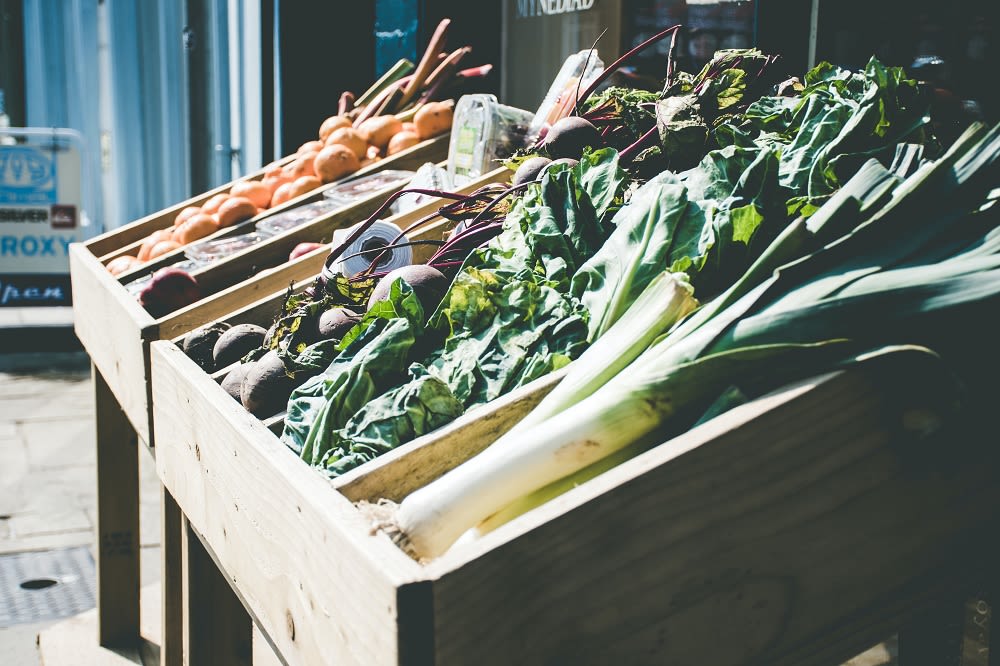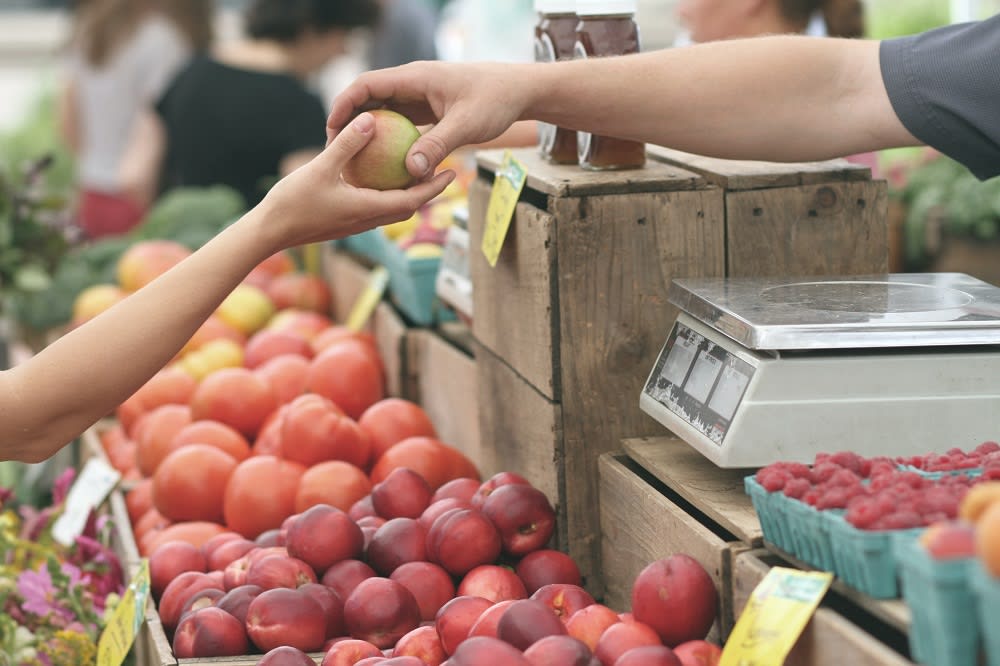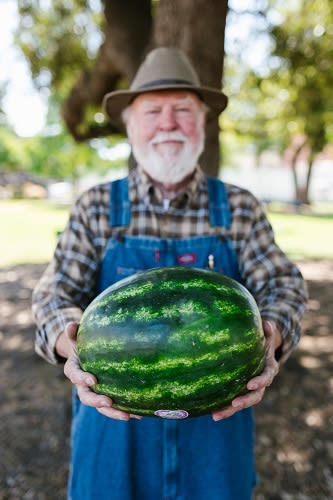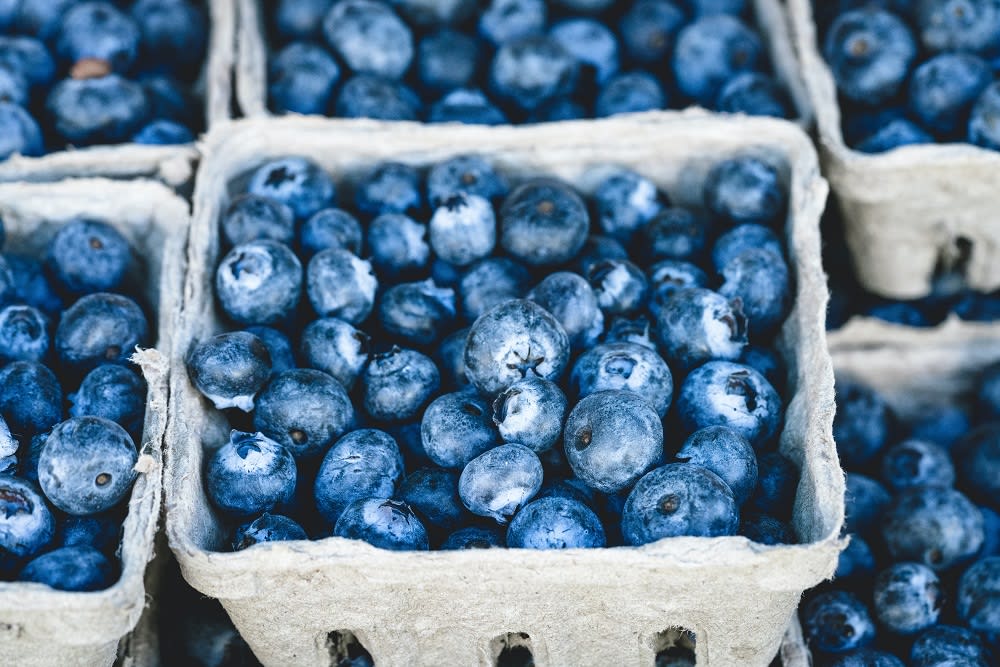
Do Farmers' Markets Sell Organic Produce? Everything You Need To Know
Do Farmers' Markets Sell Organic Produce? Everything You Need To Know
Organic Farmers' Markets
Maybe you've passed by a seasonal farmers' market in your town, or seen flyers promoting one nearby. And while it's great to support local growers, you might be wondering if organic fruits and vegetables are available at your local market. Here, we'll go over everything you need to know about organic farmers' markets and provide answers to the following questions:
- Are all farmers' markets organic?
- Do farmers' markets sell organic food?
- Is locally grown the same thing as organic?
- What makes fruits and vegetables organic?
- What are the benefits of buying organic?
- How can I find organic food near me?

1. Are All Farmers' Markets Organic?
When you go to a farmers' market, you probably see a mix of fresh produce, locally made baked goods, artisanal drinks, handcrafted self-care products, and more. And while all of these things are wonderful, they're not necessarily organic. Remember: just because something is for sale at a farmers' market, it doesn't mean it meets the qualifications to be organic.
So, you probably won't find a farmers' market that sells only organic goods, but just about any market you go to is bound to have something that was organically grown. Since all farmers' markets aren't organic, you'll need to search specifically for an organic market in your area...but we'll get to that later.

2. Do Farmers' Markets Sell Organic Food?
Though not everything at every farmers' market will be organic, you generally can find organic food whenever you go to the market. And according to Consumer Reports, the farmers' market is actually a great place to get a deal on organic produce. After all, local farmers 'are selling what's in season, and chances are, they have a lot of it so it will be competitively priced.
Keep in mind, though, that it can be expensive for farmers to earn the USDA organic label. So, small or emerging local farms might not have the certification, but could still use organic practices. Plus, one of the best things about going to a farmers' market is the community element and getting to meet the people who are growing or preparing your food. Ask them about their growing practices, if they use pesticides, or where they source their ingredients from. This connection helps foster a sense of community and can build trust between you and your grower...and that's never a bad thing.

3. Is Locally Grown the Same Thing as Organic?
Most of the food you'll typically find at farmers' markets is locally grown, and not all locally grown food is necessarily organic. If something is organic, it means it was grown without using additives - like artificial chemicals, hormones, antibiotics, and genetically modified organisms. Additionally, the growing and production methods must comply with a set of standardized regulations put forth and enforced by the USDA. So, if you want to know that you're buying certified organic food, look for the USDA organic seal the next time you're browsing at your local farmers' market.
Generally, though, you'll find that many local farmers use organic growing practices. Since they're local, they're more likely to be invested in preserving their community and ensuring the longevity of their farm. So, they'll likely take extra care to use sustainable growing practices.

4. What Makes Fruits and Vegetables Organic?
According to the USDA's website, produce can only be called organic if it’s been grown on soil that used no prohibited substances for three years before being harvested. The USDA also has a set of standards for organic foods that includes addressing soil quality, pest and weed control, and animal-raising practices. Organic fruit and vegetable growers rely on natural substances instead of unsustainable farming practices and additives (like synthetic fertilizers and pesticides).
5. What Are the Benefits of Shopping Organically?
Second, organic produce tends to be locally grown, which means you're buying from farmers in your area and cutting back on fuel emissions. This is a much more eco-friendly alternative to purchasing produce that was trucked or flown in from hundreds of miles away.
And regarding health, it's pretty common knowledge that organic food is better for you. You'll find fewer chemical pesticides and a whole slew of other benefits (including potentially reducing your risk of cancer). Shopping and eating organic have also been correlated to improved nutrition and obesity prevention.
6. How Can I Find Organic Food Near Me?
- USDA Local Food Directory: This is a national directory of farmers' markets, CSAs, on-farm markets, food hubs, and even agro-tourism experiences. You can search by your location to get connected to thousands of sellers across the United States.>
- Certified Naturally Grown: Certified Naturally Grown is an organization that offers peer-review certification to farmers and beekeepers who don't use synthetic chemicals or GMOs. According to their website, their standards are based "on the highest ideals of the organic movement." Check out their directory to find CNG farms near you. They currently have listings for 700+ farms in 46 states (and even some in Canada).
- A Greener World: If you're looking for humanely raised and sustainably made products besides fresh produce and meat, check out A Greener World. They review restaurants and retailers (in addition to farms) to ensure they meet their sustainability requirements. AGA also has online shopping options for regional delivery and pickup or nationwide shipping. To make it easy, you can shop by product, location, outlet type, or certification.
- Social media: This might come as a surprise, but social media can be a great place to find out about upcoming farmers' markets. You can use free tools like Facebook, Nextdoor, or Meetup to search for events in your area. These kinds of online groups can also connect you with like-minded people and turn into great networking opportunities.
- Green Chef: Though not a farmers' market in the traditional sense, Green Chef was the first meal kit company certified by CCOF as an organic company and is a great option for getting organic groceries and meal kits delivered right to your door. This is a game changer if you don't have an organic or local farmers' market in your area.
